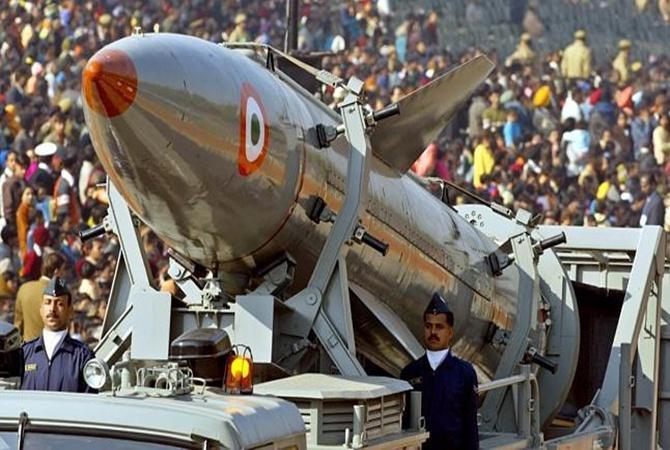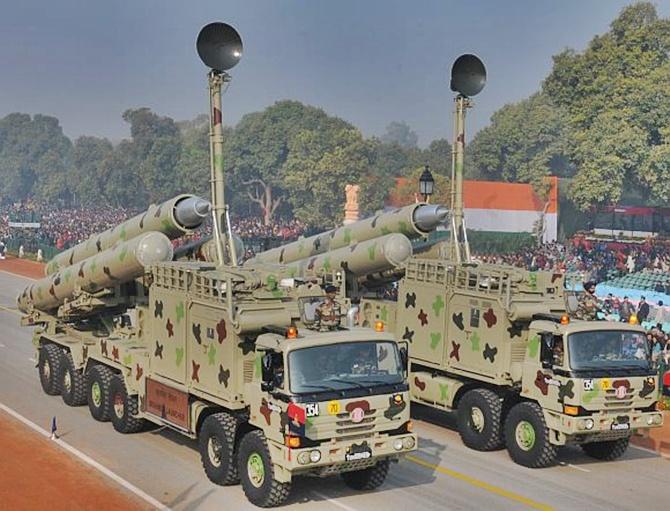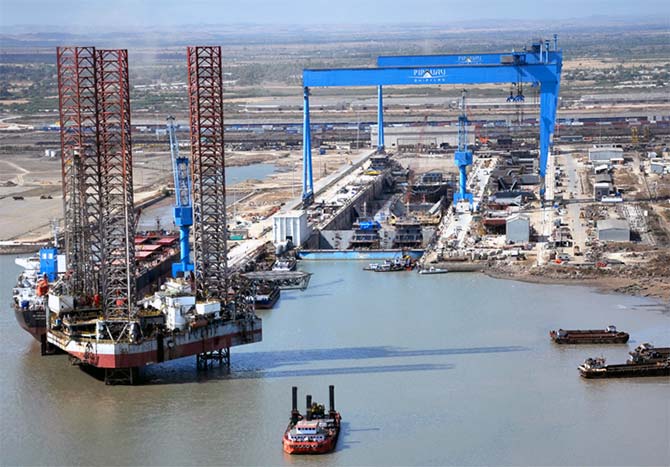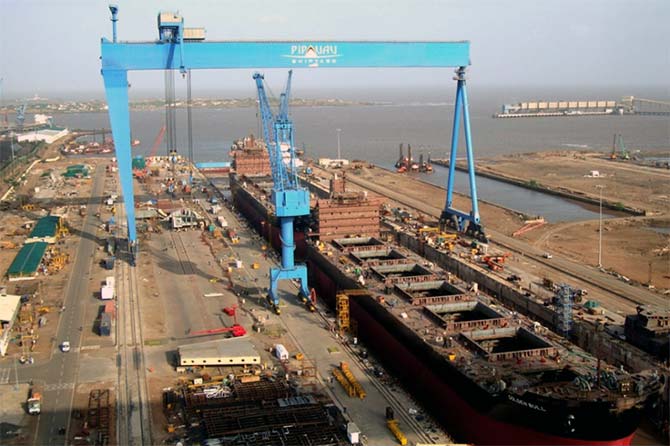
While most other big companies like Tata, Mahindra and Reliance remain non-committal on FDI, Gandhi was the lone voice supporting 51 per cent FDI through the automatic route.
First-generation entrepreneur Nikhil Gandhi is known to go off the beaten track quite often: He set up India's first private railway track, the first private port in Gujarat and the first Special Economic Zone (SEZ) in Maharashtra.
He is now making news for taking on the big boys of India Inc, such as Larsen & Toubro and Bharat Forge, on the issue of allowing foreign direct investment (FDI) in the defence sector.
"I think the national interest should be above everything else," says Gandhi, 55, chairman of Pipavav Defence, which builds warships for the Indian Navy and Coast Guard in Gujarat.
…

"There are some minor differences among the business houses in India on FDI and Indian companies might have the natural aspiration to own majority stakes. But, in a majority of cases, global players might not part with technology, unless they have full control over their Indian subsidiary - at least in the initial years," he says.
In a stormy meeting held on Tuesday at the Confederation of Indian Industry (CII) in New Delhi, Gandhi took on Bharat Forge and L&T representatives, who wanted India to restrict FDI in defence to 49 per cent, with higher FDI permissible "only on a case-by-case basis".
L&T's Chairman A M Naik recently went on record to say FDI in defence should not be allowed beyond 49 per cent to protect the interest of Indian companies.
…

While most other big companies like Tata, Mahindra and Reliance remain non-committal on FDI, Gandhi was the lone voice supporting 51 per cent FDI through the automatic route, with higher FDI permissible in cases where high-technology was being brought into India.
After Tuesday's defence committee meeting, CII changed its tune from only a week ago and now supports lower FDI in defence, like another industry body, Ficci.
Gandhi says India has been importing 80 per cent of its military hardware from a few countries for the past 67 years. And, with very few home-grown defence companies, he says it's time to allow foreign investors.
…

FDI will bring in the much-needed dollars from abroad and help India prepare a skilled workforce.
"It will not only save billions of dollars of precious foreign exchange but India will earn by exporting defence products over time," says Gandhi.
An ardent admirer of Dhirubhai Ambani, Gandhi had sold off his SEZ project to Dhirubhai's son and Reliance Industries chairman, Mukesh Ambani, before deciding to focus on the defence sector.
Gandhi, who started his business in the 1980s by selling Kolkata's famed betel leaves in Mumbai and travelling in trains between Kolkata and Mumbai as a 20-year-old boy, says FDI will also help Indian companies compete and bring them on par with foreign companies.
…

What made him get into defence business? During a trip to Gujarat in 1990 to visit the birthplace of his father, he came across Pipavav, a small coastal city and conceived the idea to set up a port project, Gandhi says.
As there was no railway track, he set up the line under a joint venture with Indian Railways.
Though he later sold off the port project to multinational Maersk, he went back to the city to set up India's first private shipyard.
…

Today, Pipavav Shipyard's order book stands at a whopping Rs 6,600 crore (Rs 66 billion), which is estimated to grow up to Rs 12,000 crore (Rs 120 billion) by 2015-16, as a result of increased orders to local companies.
The company generated a net profit of Rs 8.36 crore (Rs 83.6 million) on sales of Rs 2,278 crore (Rs 22.78 billion) in 2013-14, according to BSE filings.
Any increase in FDI will help the company get in new investors and help get the crucial technology. Gandhi says the group is also looking at the option of entering other segments of the industry as soon as FDI is allowed.
"The sector requires the combined efforts of local business houses and global defence majors, as it requires massive capital, state-of-the-art technology and other ingredients to ensure a world-class end-to-end solution is available to our armed forces," he says.